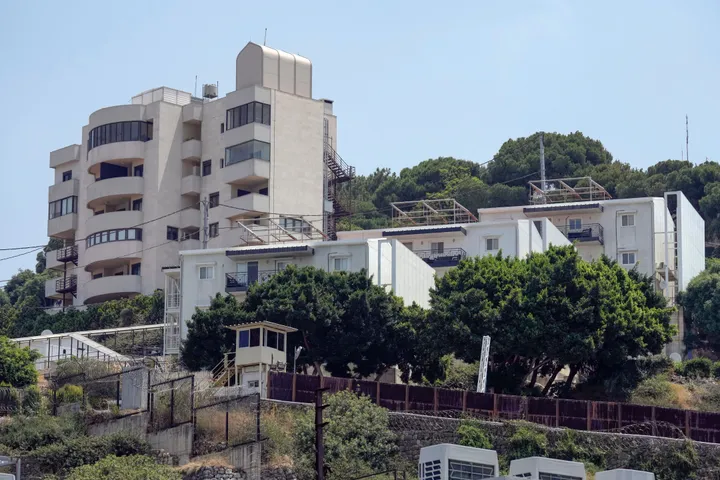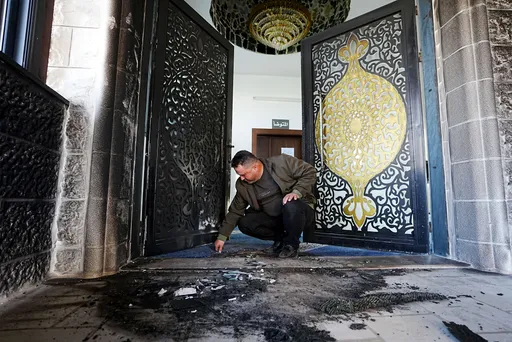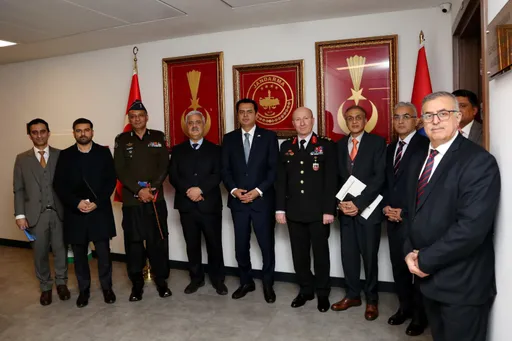The seventh round of talks on bringing peace to Syria began on Monday in the Kazakh capital, Astana, with the Turkish, Russian and Iranian delegations holding bilateral negotiations.
The two-day meeting was the first since an agreement was reached on how to set up four de-escalation zones in Syria.
The talks, brokered by Turkey, Iran and Russia, will focus on strengthening the ceasefire that came into effect on December 30.
It also addresses the release of captives and hostages, and humanitarian actions that can be performed across the country.
Observer countries
The Turkish delegation is chaired by Deputy Undersecretary of the Turkish Foreign Ministry Sedat Onal, while Special Envoy for Syria Alexander Lavrentiev leads the Russian team and Iranian Deputy Foreign Minister Hossein Jaberi Ansari heads his country’s delegation.
Representatives of the Syrian regime, armed opposition groups, as well as delegations from the UN, Jordan and the US are also attending the talks.
Monday's bilateral and multilateral talks will have a closed-door format, and a plenary meeting is scheduled for Tuesday.
During the talks, the participants will also discuss expanding the number of observer states in the Astana process, to include such states as Iraq and China.
Russian Foreign Minister Sergey Lavrov previously said he believed that it would be "useful" to expand the number of observer countries.
Dossiers on abuse
Armed opposition groups held a meeting with a UN delegation and presented four documents to the UN about violations of the cease-fire, the situations of hostages, massacres by the Assad regime and Iran-supported militias, and the reshaping of Syria's ethnic makeup by Iran and the terrorist organisation PKK.
The first document, called Demographic Change, included evidence accusing the regime, in collaboration with the PKK terrorist organisation and the PYD, of driving civilians from their homes and seizing property.
The PYD and its armed wing YPG are groups Ankara considers the Syrian branch of the PKK. The PKK is considered a terrorist organisation by Turkey, the US and the EU.
In the second document Karyateyn Massacre: Regime-Daesh Cooperation – it was claimed that Daesh handed the Karyateyn region of Syria’s western Homs province to the regime without a fight, despite government claims it took the area by force.
According to a source, the third document – Hunger Strike in Homs Prison – focuses on the prison’s governor who, it is claimed, tried to convince visiting Red Cross teams that the situation was "positive."
Some visuals included in the document showed inmates having been tortured.
The last document – Massacres of Iran's Revolutionary Guards and Shia militias in Syria – presented evidence of claims Iran's Revolutionary Guards helped form Daesh.
Northern Syria under discussion
The Russian delegation will also raise the issue of establishing a "national reconciliation committee" among the Syrians.
Northern Syria will also be discussed in the meeting as large parts of the region are controlled by the PYD/YPG.
The Astana talks have made more progress than the parallel UN-driven talks on Syria in Geneva.
During the previous meeting in September, the parties in Astana agreed to the boundaries of the final de-escalation zone in the northern Syrian province of Idlib.
Syria's United Nations envoy Staffan de Mistura has said the next round of Geneva talks will begin on November 28.
More than 600,000 people have died and millions have been driven from their homes in the conflict in Syria that began with the repression of anti-regime protests in 2011.























